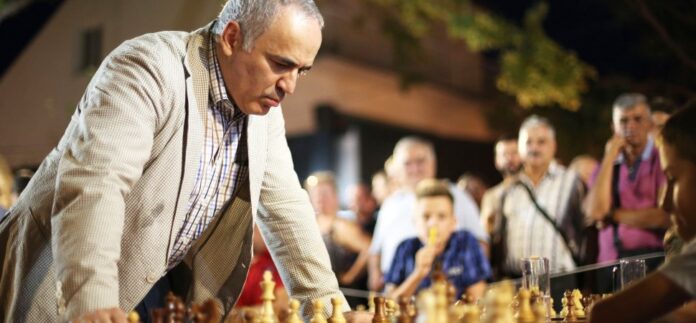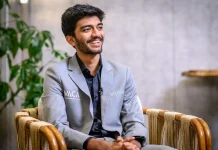What do you do after making a major mistake? Take a page out of Garry Kasparov’s playbook.
Garry Kasparov is regarded by many as the best chess player of all time.
At the age of 22, Kasparov earned the title of youngest world chess champion. He went on to break multiple records and dominated the world of competitive chess for 20 years, before retiring in 2005.
Kasparov’s an amazing chess strategist, but he’s also a brilliant thinker whose insights can be applied to the world of business, and really any type of decision making. This fact became strikingly clear to me as I recently took an online course from Kasparov, hosted by Masterclass.
Reflecting on the course, one lesson especially stands out. It has to do with Kasparov’s approach to mistakes and failure, and we can sum it up in a single sentence:
To truly improve at anything, you must get in the habit of analyzing your mistakes.
“If you want to understand how to get better, you have to look at exactly the moves you made, and find out the nature of your mistakes,” says Kasparov. “Learning about yourself is absolutely impossible without being a thorough analyst of your own games. And you have to be very honest. Brutally honest. Relentlessly honest.”
This absolutely rules out making excuses, says Kasparov, such as claiming a bad move was a result of someone speaking too loudly, or the way an opponent looks at you.
“[The] better you understand the nature of your mistakes,” says Kasparov, “[the] better your chances of making fast improvement.”
This lesson stood out, not only because it is useful in business strategy, but also because it is a major lesson in emotional intelligence.
Emotional intelligence and analyzing mistakes
Emotional intelligence is the ability to identify, understand, and manage emotions. I like to call it: making emotions work for you, instead of against you.
Kasparov’s advice is so sound because all of us make big mistakes from time to time, what Kasparov refers to as “blunders.”
The question is, what do you do after you’ve made a blunder?
The temptation is to dwell on the mistake and feel sorry for yourself, to fall into a pity party and revel in negative emotions. Or, you might tend to the opposite extreme: Unwilling to deal with negative emotions, you simply ignore your mistakes and go through life repeating them, over and over.
Neither of these approaches is healthy.
Instead, you should get in the habit of analyzing your mistakes. Not to continuously berate yourself for what you’ve done wrong, but rather to identify what you could change to keep this from happening again.
You can apply this to your own business or work life. The key is to use the negative emotion that results from the unwanted situation as a catalyst for change.
For example, Kasparov says the few times he suffered a loss, he would usually win the next day.
“I got really angry with myself,” says Kasparov. “And I could channel this anger into productive energy–to achieve a positive result.”
To illustrate, Kasparov recounts the story of the 1995 Classical World Chess Championship, where he defended his title against rival Viswanathan “Vishy” Anand. Kasparov and Anand drew eight games in a row. Then, Kasparov lost game nine to Anand.
The loss could have destroyed Kasparov’s confidence. Instead, it caused him to regain focus. He analyzed the loss and looked closely for mistakes he could address.
The result?
Kasparov won four of the next five games, eventually claiming the title.
So, the next time you commit a serious blunder, take some time to analyze it. Start by asking yourself the following questions:
- Why did I react the way I did?
- What may I have misunderstood or have gotten wrong, especially in the heat of the moment?
- What would I change if I could do it again?
- What could I say to myself next time that would help me think more clearly?
The goal of these questions is to engage your thinking process so you’re more adept at recognizing your emotional behavior and tendencies moving forward. You can then take action to change any damaging behaviors.
Don’t expect to fix it in one try. After all, “we’re all humans,” as Kasparov puts it.
“You still think about it,” he continues. “You cannot make [it] torture you forever … but it’s there. It’s normal human feelings about your own failure. I just knew that I have to live with that.
“And the best way to put it aside is to just prepare for the next game. Ideally, to win the next game. And then, you can just move on.”
















Very apt and insightful. Thanks for sharing